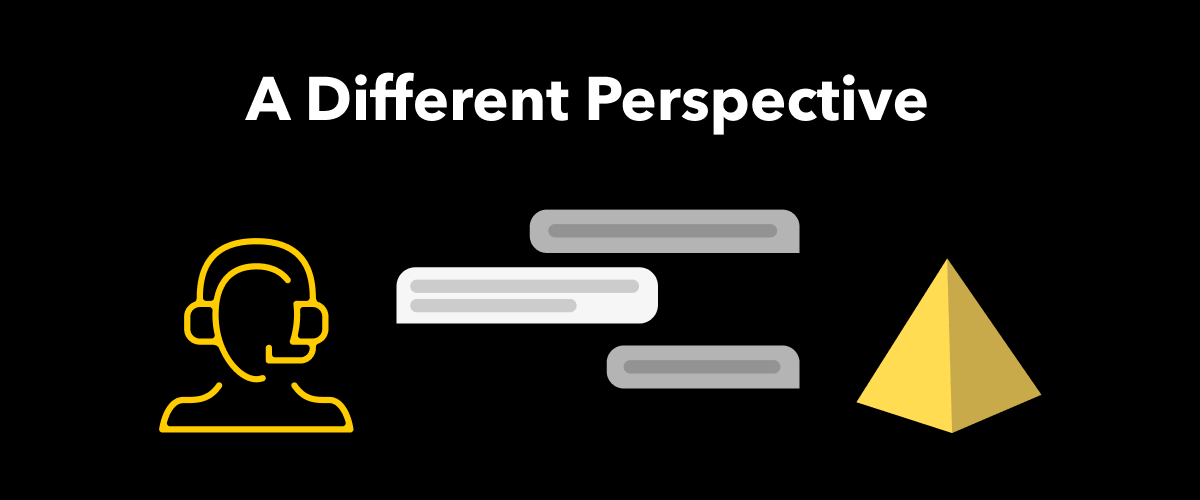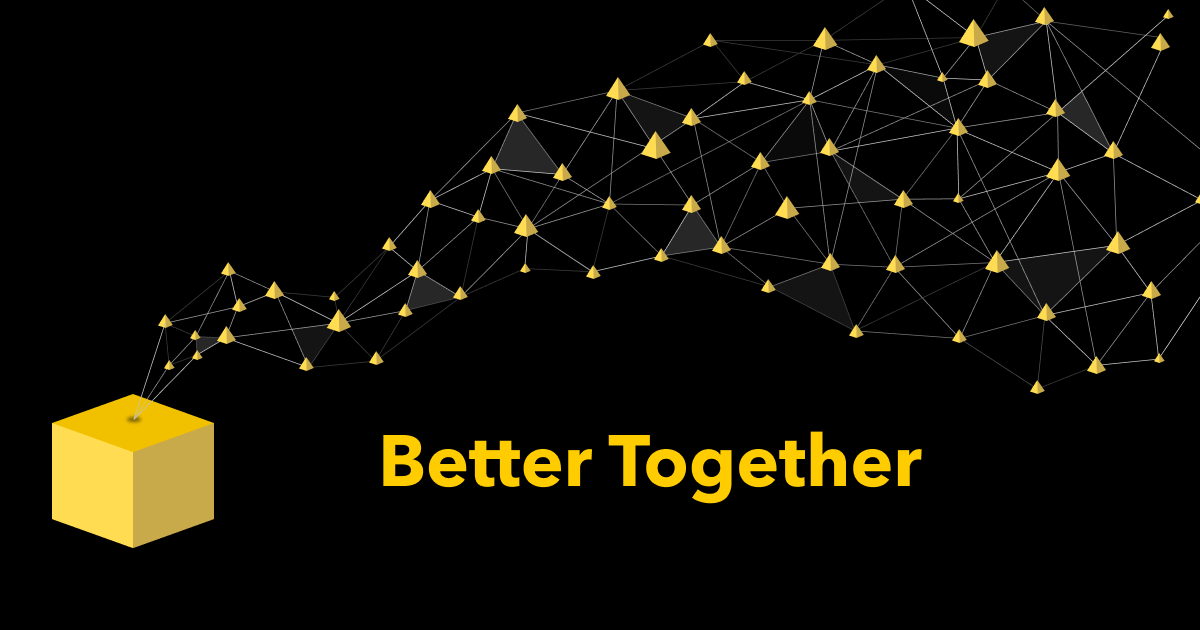Being a customer service agent in a contact center is an incredibly difficult job. It can be exceptionally stressful, especially during seasonal peaks when inquiries are coming in faster than a team of agents can respond.
Agents are expected to perform under immense time pressure and are measured based on how many inquiries they can close over the course of their shift. Setting these sort of rigid requirements puts agents at an inherent disadvantage given the very nature of what they do is unpredictable. It’s 100% dependent upon how and when customers might need help.
And as our Jay Molino recently wrote, being a contact center agent is “highly stressful, very inflexible work — and agents have little passion for it, which is a perfect recipe for turnover.”
That’s why our industry needs an alternative labor model that offers more flexibility — and why we help companies tap expertise in the crowd to help provide scale to any customer service organization.
Unlike contact center agents, Directly’s on-demand experts are not full-time employees — they provide answers, and are compensated for each successful effort. They are almost always not looking or interested in full-time contact center work. And most importantly, they are truly experts. According to our recent expert survey, 60%+ of experts have over 5 years of hands-on experience using the products and services they support, and 88% have a bachelor’s degree or other college training.
Still, we wanted to better understand what it’s like being a call center agent — and how it’s different from being a Directly expert. As we learned in our recent survey, many Directly experts have previously worked for contact centers. So, we decided to ask them to compare the two roles. Here’s what some of our experts had to say:
Subject-matter expertise vs. formal training
One of the biggest differences between experts and contact center agents is their level of expertise — especially as they are just starting out in those roles. The former agents we spoke with claimed they had little specific knowledge of the products or services they would support when they were initially hired at contact centers. They were hired for their general customer service skills and upon arrival they each completed training that ranged from a few weeks to several months before they engaged with any customers. Alternatively, they were recruited and qualified as Directly experts because they already had specific first-hand experience with the products and companies that needed their help.
“As agents, you just follow the troubleshooting support materials you are given,” said Jeff Cabotaje, who now works as a Directly expert in support of Xbox. “And if they don’t work to resolve an issue, agents will escalate it to a higher level. But as a (Directly) expert, you’ve likely already experienced it, so you can solve it.”
For Ingrid Keltz, who worked for various call centers supporting brands like Sears, FedEx and AT&T, the difference between her past and serving as a Directly expert on behalf of Ancestry is that she’s simply sharing expertise like she always had. “My passion is ancestry and genealogy — and I have been involved in that for years, answering questions on forums and in online groups,” she said. “Now I can get paid for doing what I’ve already been doing for years.”
Continuity vs. turnover
Agent attrition is a known problem in contact centers — and a costly one. Industry estimates suggest the annual turnover for contact centers is in the range of 30-45%. While estimates vary for how much it costs to train and hire new agents, the bigger cost is the quality of service.
Ingrid said agent turnover sometimes left staff depleted and unable to handle typical volume — let alone surges. “Calls would come in and people weren’t there to answer them,” Ingrid said. “So, they would have to wait online longer and longer to get to a representative. And then when they did get an agent, we were rushing to get them off — without giving them quality service.”
For many agents, the turnover was also reflective of a bigger problem — a lack of interest in the actual work. “There was always a huge turnover of agents, either due to hours or just because they didn’t like the work,” said Directly expert Kelly Felhaber, who worked in various contact centers for nearly two decades. “Many agents simply didn’t care about resolving the issue. They take the call and either follow whatever scripts they have or say, ‘Sorry, I can’t help you,’ and escalate it.”
At Directly, we’re fortunate in that our experts keep coming back to answer more questions. In fact, our survey found that 95% of our experts plan to continue working with their networks for at least the next year. That lack of turnover means businesses get continuity in their expert networks — and consistent quality of service.
Problem-solving vs. process
One way the work of a Directly expert differs dramatically from a contact center agent is process. Directly experts are given the freedom to solve problems based on their specific expertise and the unique challenges of each issue. Contact center agents are much more process-oriented, following guidance given during rigid training programs and often using carefully developed scripts.
Before becoming a Directly expert, Patrick Curry worked as an agent supporting various information technology companies. While he generally liked the contact center role, he didn’t love some of the process — and felt at times that it prevented him from getting to the root of the problems.
“The one thing that I didn’t like about (the call centers) is that it was always call after call after call — you were always on the phone and you couldn’t put people on hold for very long because of rules around time restrictions,” Patrick said. “What’s nice about Directly is that you can take the time to answer the question carefully.”
Ingrid felt similarly, noting that because contact center agents are measured on time-based performance, she sometimes had to choose between being helpful and being quick. She said that she was expected to resolve questions on average every 5-6 minutes. “You were allowed to go over it once in a while, but if you did so consistently, you could lose your job,” she said.
“One center had a lot of ridiculous rules,” she added, “like one where you had to keep coming back on the phone every 60 seconds to let the caller know you were still resolving their issue. Sometimes the customer would tell me, ‘Hey, you don’t need to keep doing that, I’m fine. Just get it taken care of.’ But it was required, even though it took longer.”
Flexible task-based work vs. full-time work
Full-time work has its benefits, literally — most full-time contact center jobs come with health insurance, along with the stability of regular income. However, many people today are choosing freelance or gig work because it gives them more flexibility to do work that best fits into their lifestyle and schedule — especially in the wake of the pandemic. Similar to other freelance work, experts choose when to be available for work and answer questions. Experts can also choose to set up notifications on their devices, so they are notified when there’s an opportunity to answer a question — and earn compensation.
Kelly said that he used to work an afternoon shift at one contact center — and while his shift was supposed to end in time to catch the final bus of the night, sometimes he’d miss it. That’s a far cry from his work with Directly, when he can answer questions for a gaming network whenever he’s free – often times when he’s playing games or watching TV during the evenings. “When you’re paid hourly, the company dictates what you do and when you do it. With Directly, I can sit down for an hour now and answer questions,” he said. “I don’t have to sit there for eight hours and do it. That’s what I do enjoy about it — if I need to take a break I can, and then get back to it later.”
For others, the flexibility of task-based work, in which you can earn money at times that suit you best, ultimately offers more work-life balance. “In the call center, it’s like being tied to a clock,” Jeff said. “I’m in at the start of a day, I’m out at the end. With Directly, you are free to choose what time you start, what time you stop. You can have a more balanced work and family life.”
Ingrid said similarly, “For most people, working for Directly would fit their lifestyle a lot better — especially parents. For me, I like to work at night and sleep in during the day — so it works out really well for me.”
Wellness
We all do better work when we’re healthy. Ingrid worked for three different contact centers over five years. She shared a story of one particular holiday season when her team had been decimated by turnover and the flu. They were running at about half staff during peak season. One day, her child’s school called the facility because she wasn’t feeling well — her supervisor answered and told the school that she wasn’t there. She didn’t find out about it until much later.
“I asked, why did you do that?’ And she said, ‘We were short-staffed. We couldn’t afford to have you leave.’ Well, my kid was having an asthma attack at school. She needed an inhaler.”
Ingrid is happy that horrifying experience is behind her, and appreciative of the flexibility that being an expert offers — especially as it relates to her health. “Since working only with Directly, I haven’t been sick once, and I’ve saved a ton of money on doctor appointments.”
For Kelly, he’s been unable to work a full-time schedule since being diagnosed with a health issue. “I’m unable to go and sit for 8-12 hours straight anymore,” he said. “So that’s why I like working here, because I can move around and take breaks.”
Ingrid added that while her overall wellness has improved since leaving the contact center, she thinks that her ability to problem solve and deliver great customer service has also improved.
“My mental health has never been better, because I can go to sleep, wake up, and eat when I want while working on Directly, as opposed to working a call center schedule,” she said. “I feel this helps the customers that I’m serving, because I look forward to sitting down to work as opposed to dreading the next commute and shift at a call center.
“It is easier to be focused, empathetic and go the extra mile with a customer on Directly — rather than counting the seconds until I can leave at a call center.”
While the experiences expressed by these former agents isn’t indicative of all contact centers, it certainly highlights the need for companies to have an alternative — and highly motivated — workforce ready to help customers when they need it most.
Why Directly experts?
Directly delivers world-class customer service for leading Fortune 500 brands. Captive and outsourced contact center models increasingly can’t keep up with customer service demands, while self-service is only effective at deflecting simple contacts. Directly helps you troubleshoot a wide range of technical issues using on-demand experts. Customers like Microsoft, Samsung, and Airbnb to reduce contact center volume up to 40%, boost CSAT up to 20% and save millions per year. Contact us to set up a demo today.



